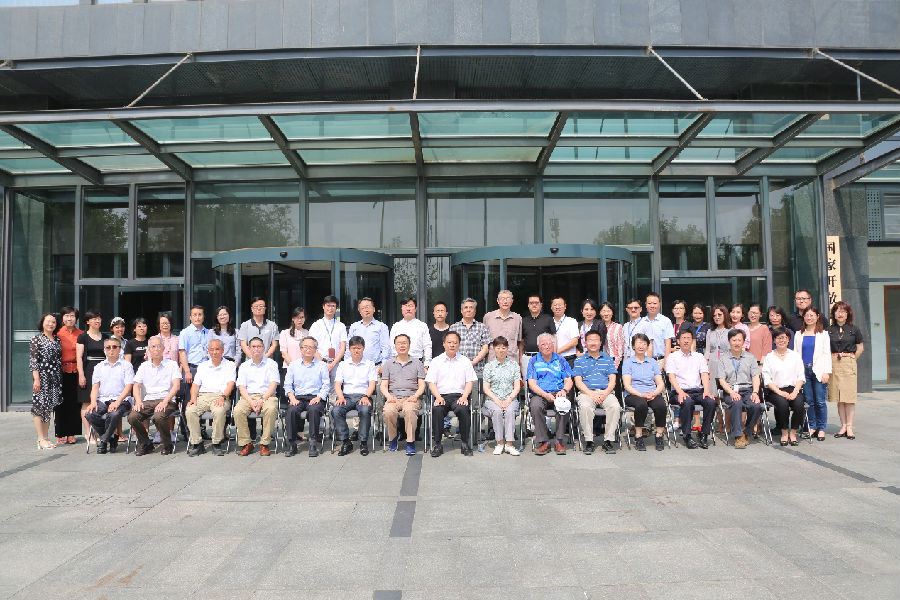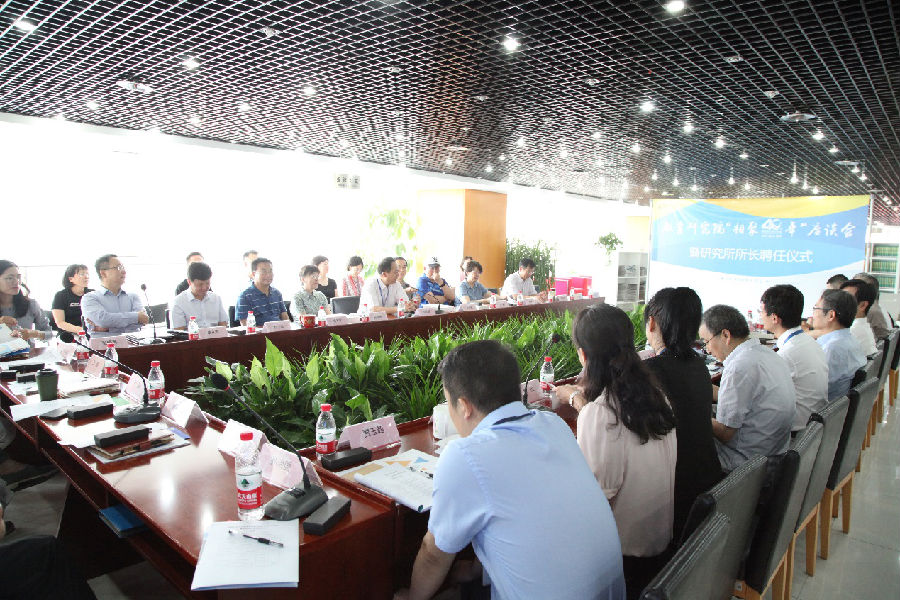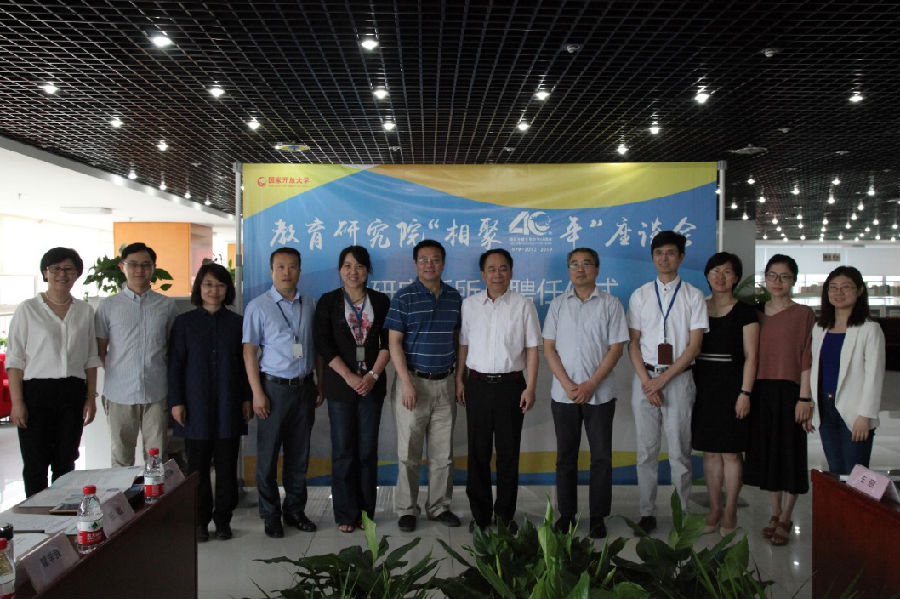 2019 marks the 40th anniversary of the founding of the Open University of China (OUC). On the morning of 11 June, the OUC Education Research Institute held a forum on "Meeting at the 40th Anniversary" and a ceremony for the appointment of the heads of its institutes.
2019 marks the 40th anniversary of the founding of the Open University of China (OUC). On the morning of 11 June, the OUC Education Research Institute held a forum on "Meeting at the 40th Anniversary" and a ceremony for the appointment of the heads of its institutes.
Yang Zhijian, secretary of the OUC Party Committee and OUC president; Yang Xiaotang, vice president; Zhang Shaogang, former deputy secretary of the Party Committee; Sun Lvyi, former OUC vice president; Liu Zhixun, deputy secretary of the Party Committee of OUC Dalian branch; representatives of some OUC research organisations; responsible personnel from the OUC Education Research Institute and relevant departments; all the teachers of the Education Research Institute; retired faculty members; and visiting scholars and teachers who have worked in the Institute, participated in the forum.

Wang Ying, director of the Education Research Institute, reviewed the achievements of the Institute in terms of team building, mechanism innovation, and research achievements since it was renamed. She focused on the new organisational structure and open research team of the Institute, which was initially formed as "one School, eight institutes, and N centres.” In particular, she mentioned the publication of books such as Research Report on the Development of Distance Higher Education in China, World Open Universities Case Study Series, and the Book Series Commemorating the 40th Anniversary of the Establishment of the OUC, which played a great role in promoting academic and policy research in the field of Distance Open Education.
In his speech, Yang Zhijian recognised the achievements of the Education Research Institute in recent years, pointing out that behind the achievements and honours are the efforts of the employees of the Institute. Yang Zhijian put forward three expectations for the future development of the Education Research Institute. Firstly, he expects that the Institute will become both an internal and external driving force for the strategic development of the OUC to promote and support the development of the OUC. Secondly, he hopes that the Institute will become a flagship in the field of distance and open education in China, and its research results will be of guiding significance. Thirdly, he wishes that the Institute can become a strategic reference point for the field of distance and open education, absorb prestigious and influential researchers from various other fields, and build a more open platform for academic research and exchange.
During the seminar, a ceremony to appoint the heads of the institutes was also held. Yang Zhijian appointments the part-time heads of the Curriculum and Teaching, Resources and Services, Teacher Development, and Education Quality and Assurance research institutes. In order to meet the needs arising from the situation of university development and enrich the core elements of open education subject development, the Institute employs heads of relevant departments from the headquarters as part-time directors, allowing it to closely combine professional work with scientific research. The appointment of the heads of these four institutes is the embodiment of the exploration of a new mechanism.

As one of a series of activities celebrating the 40th anniversary of the founding of the OUC, senior leaders and colleagues from the Institute were invited to return to the institute and participate in the symposium and the appointment ceremony of the heads of the institutes and exchange experiences. Everyone reviewed the great changes in the past 40 years since the founding of the OUC, talked about the history of the Institute, shared their feelings, experiences, and thoughts, and put forward their hopes for the future development of the Institute.

Looking back on the past, the growth process of the Education Research Institute resonates with the 40th anniversary of the OUC. Looking forward to the future, the Institute will not forget its original intention; it will inherit the spirit of research and strive to make progress in the field of distance and open education.
By Jiang Xiaoqing, OUC